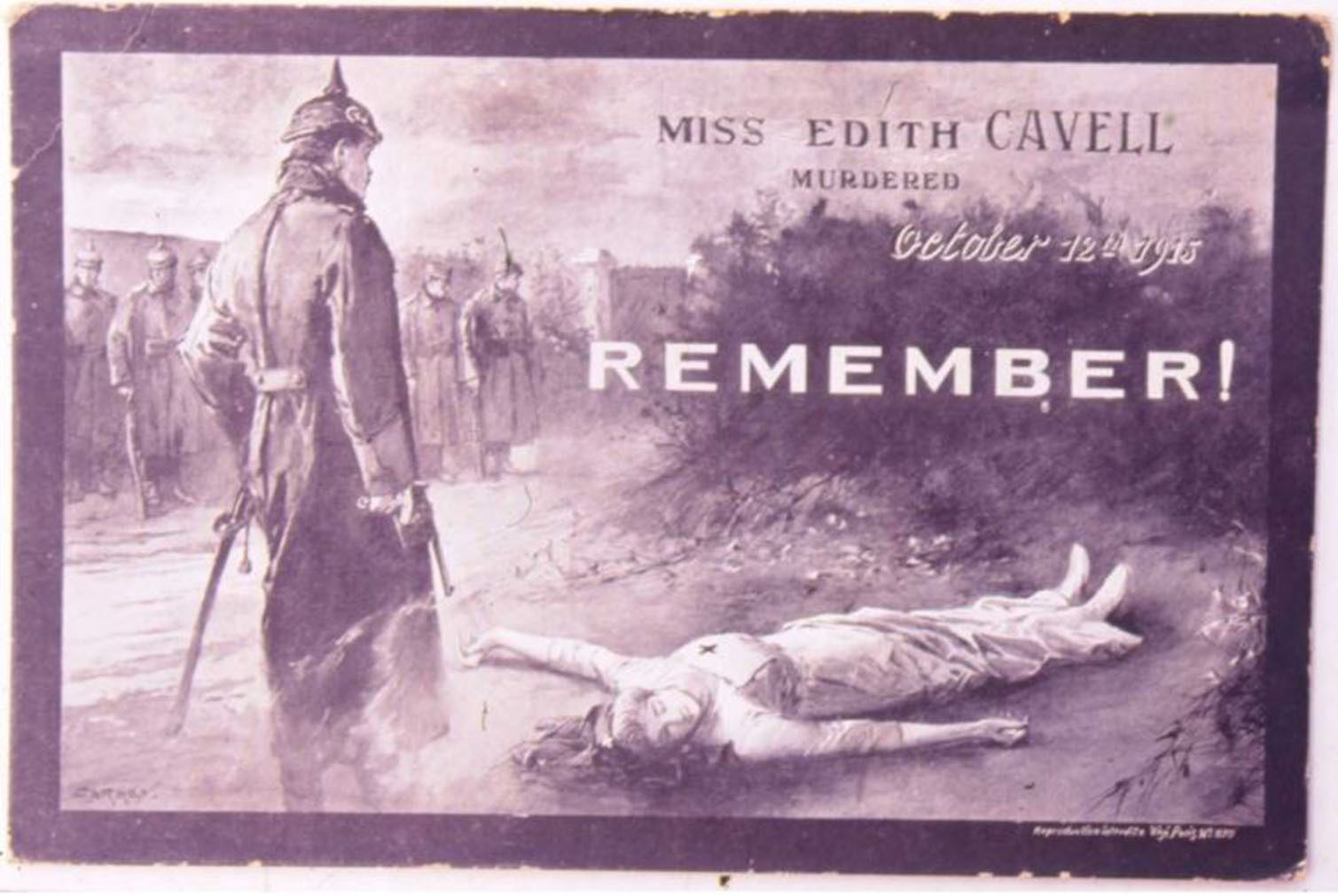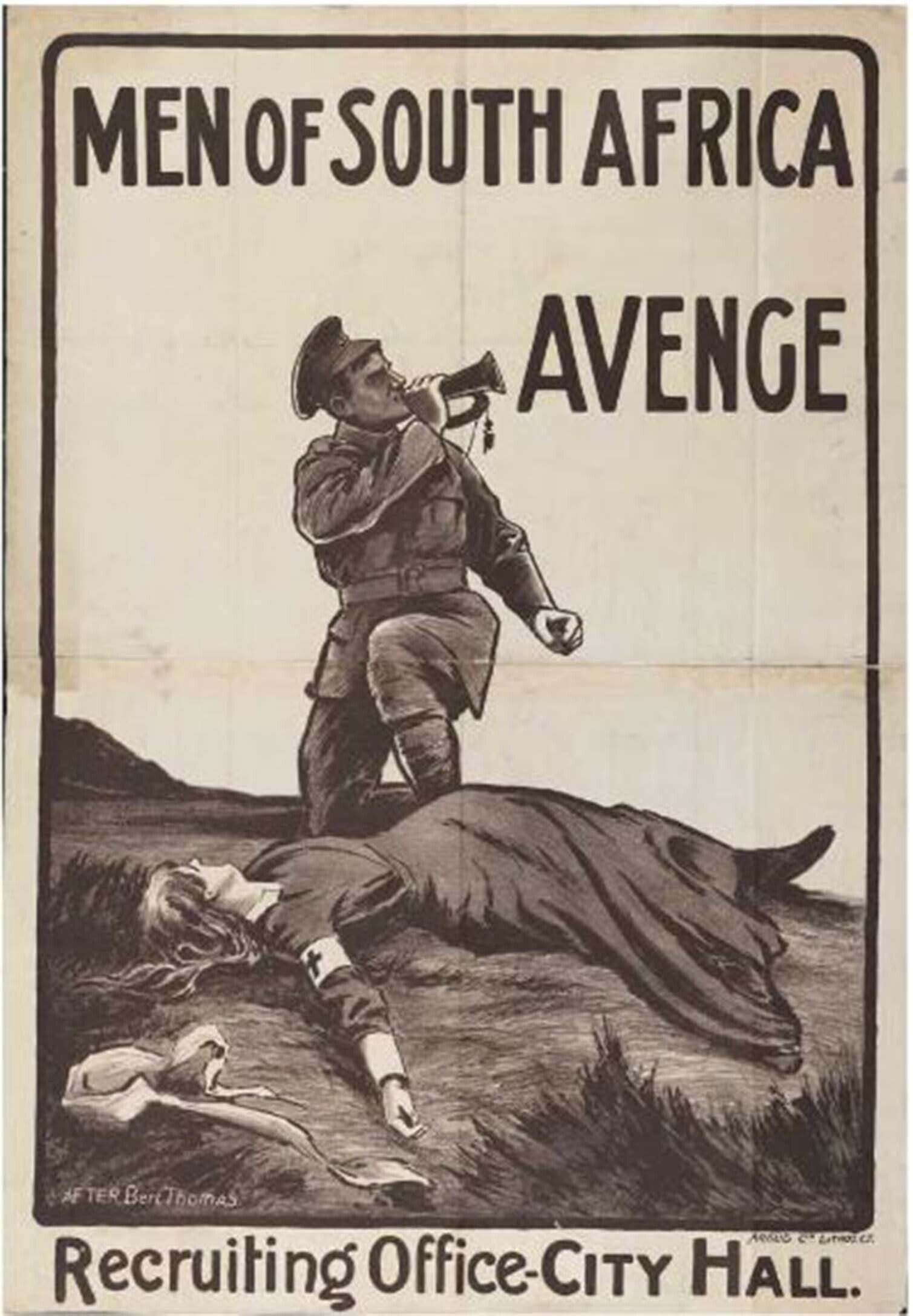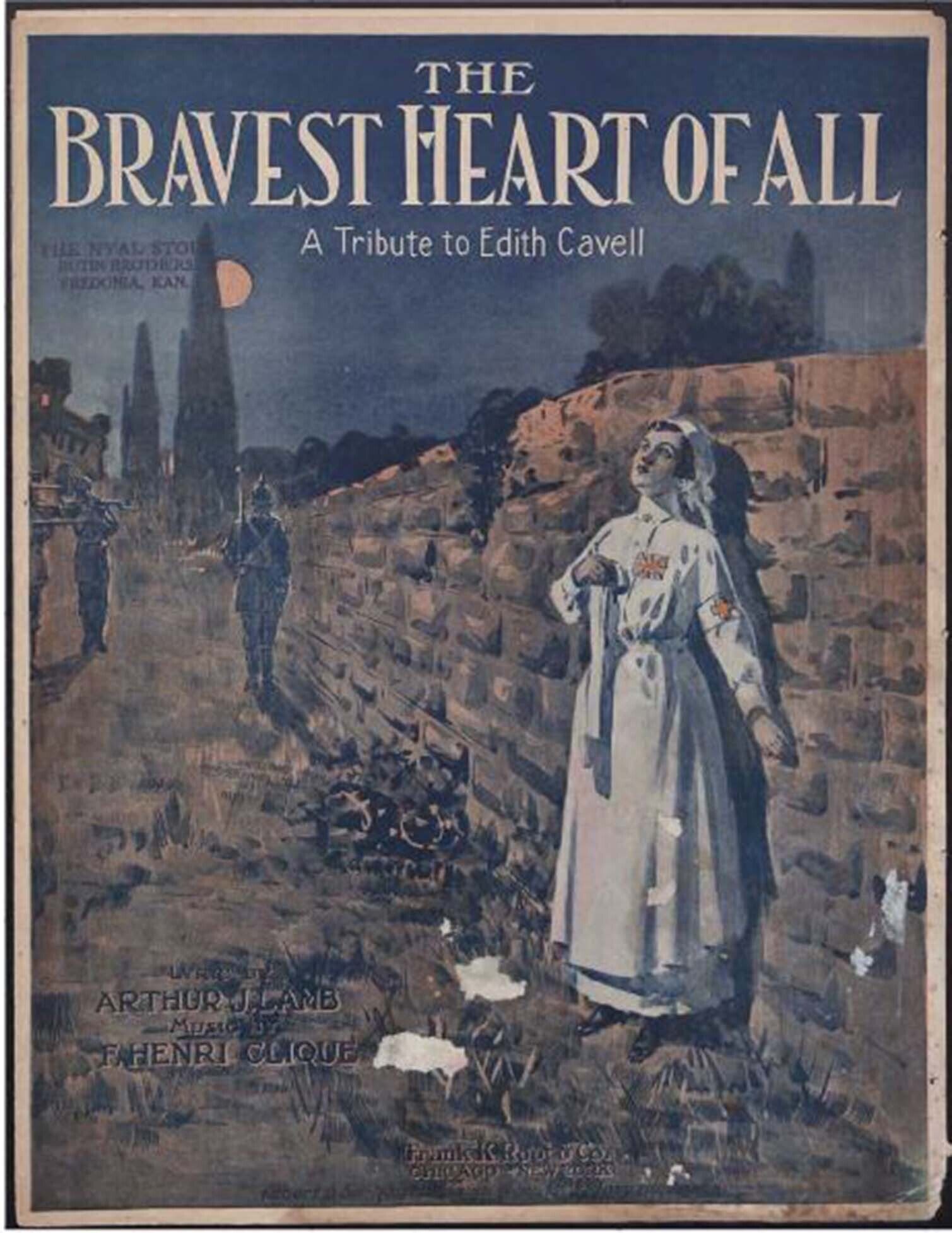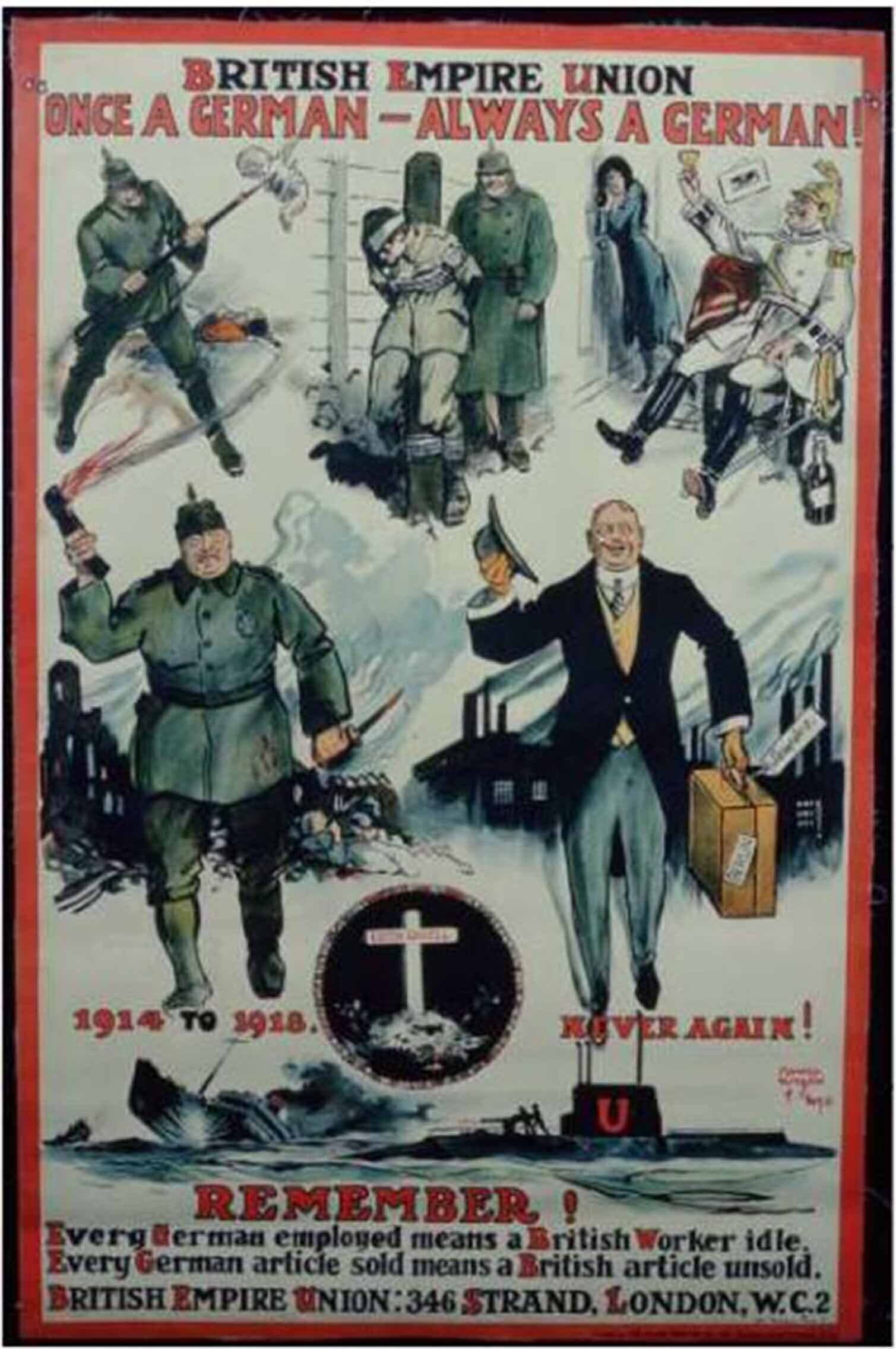"The Bravest Heart of All"
One hundred years ago, on 12 October 1915, having sentenced her to death for treason, the Germans executed British nurse Edith Cavell (1865-1915) in Belgium. The death of Edith Cavell was not simply a personal tragedy, the loss of a pioneering nurse, or that of a brave woman who had aided the escape of more than two hundred Allied soldiers to neighbouring neutral Holland. It quickly took on a far wider-reaching meaning.

Miss Edith Cavell Murdered – REMEMBER! 12 October 1915 © Material reproduced courtesy of the Robert Opie Collection. Further reproduction prohibited without permission.
Sparking global outrage, the execution of a woman, and a nurse at that, by firing squad came to symbolise German cruelty, and featured prominently in war propaganda. It served as a reminder to those at home and at the front lines why the war was fought, while driving much-needed recruitment in Britain and abroad.

Men of South Africa - Avenge, 1914-1918 © Imperial War Museums. Further reproduction prohibited without permission.
Songs were written in Cavell’s honour, a mountain in Canada was named after her, and numerous postcards, posters and stamps featured her execution. The outrage that followed Cavell’s untimely death, and the success of the subsequent propaganda campaign, was inherently gendered, exemplified by the frequent depiction of Cavell as a young rather than middle-aged woman.

"The Bravest Heart Of All: A Tribute to Edith Cavell, n.d. © National WWI Museum at Liberty Memorial Archives. Further reproduction prohibited without permission.
The use of Cavell’s death for propaganda purposes did not immediately end with the war. A poster printed by the British Empire Union in 1918 called on British workers, employers, and consumers not to trust the Germans. Imagining the war-time atrocities of a harmless-looking German business man, alluding to Cavell’s death helped to lend weight to the Union’s claims.

Once a German – Always a German, 1918 © National WWI Museum at Liberty Memorial Archives. Further reproduction prohibited without permission.
A hundred years on, Cavell continues to be remembered and celebrated for a variety of reasons – as nurse, Christian, woman, martyr, heroine, and spy, to name but a few. The transnational impact of Edith Cavell’s execution also extends into the present, with commemorative events taking place this year across the UK, Belgium, and Canada.
For more information about First World War Portal, including free trial access and price enquiries, please email us at info@amdigital.co.uk.
Recent posts

Discover how the Mass Observation Project evolved through the 2010s. Explore societal trends, from climate change to digital shifts, revealed through module IV. Read how researchers and the public document everyday life in a changing world.

This blog spotlights Foreign Office, Consulate and Legation Files, China: Section II's material which documents China's relations with Britain, and key events such as the beginning of the Xinhai Revolution that ended centuries of imperial rule. It features correspondence between London and British diplomats stationed in Weihaiwei, the first foreign concession in China.
